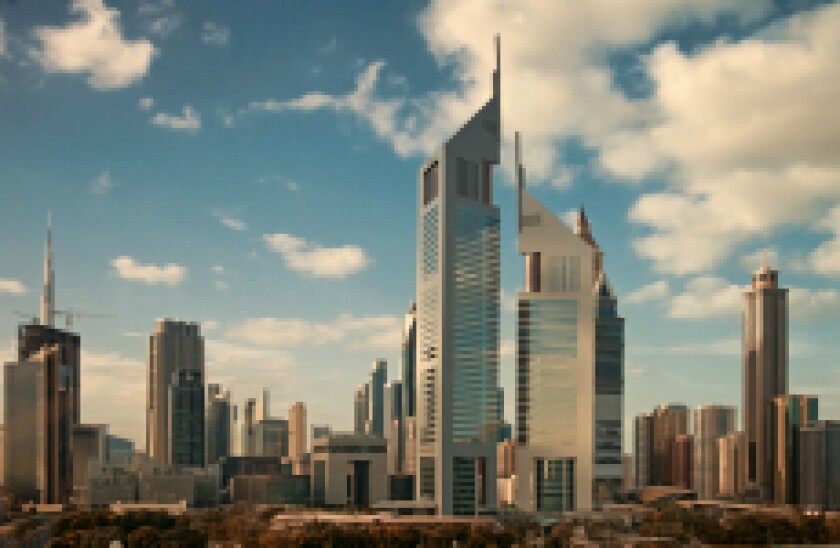On the face of it, things are looking better for Dubai bond and stock investors going into 2015 than they did going into December. But that is not a glowing vote of confidence.
Stocks saw moves of 10% to 15% up or down in a day during December, as liquidity evaporated from the market. Dubai’s five year credit default swap, which had hit a post-crisis tight of less than 140bp in June, gapped out over 100bp in December to above 280bp.
Volatility has abated and bonds have followed US Treasuries upwards, but stocks are still under pressure and CDS remain at the wides. For bond and equity investors in the region in 2015, it may be necessary to sit on cash for much longer periods than they have been used to, deploying this only in very selective investments when market volatility presents an opportunity – and getting back to cash whenever they spot a convenient exit.
Buy-and-hold is going to be a hairy ride, but getting in and out of bond trades could also be challenging if the four or five point bid/offer spreads of December come back. And even a cursory glance at economic indicators would suggest that further bouts of volatility are in the post.
Oil will remain depressed until Saudi Arabia says when. The UAE’s neighbour, which enjoys the lowest cost of production on the globe, is determined to shake weaker producers out of the market not just for a while but for good. That could take some time.
It’s fashionable these days to claim that the United Arab Emirates is a diversified economy, but some 64% of its income comes from oil and gas. While only 4% of Dubai’s income comes directly from the sector, the emirate is supported by its oil-producing sibling state, Abu Dhabi.
Moreover, Dubai is a confidence economy and any reduction in liquidity will affect it. A key metric for the emirate is how many visitors head there for business or tourism. The anecdotal evidence is that hotel occupancies are already falling, a problem for the hotel owners magnified by a 20% charge imposed by the state on every room every night. Dubai has a much bigger local population than it did at the time of its last financial crisis in 2009, which has supported the property market. But no-one is talking about big increases any more – in fact, the only parts of the market that are still on the rise are those that are catching up. The secondary market has stopped operating and transactions volumes are way down.
Dubai is arguably the Gulf state with the most face to lose – and the most susceptible to the foibles of the global investor base. It has risen high in recent years and the mood became that of a party before last year. But, as was seen in its financial crisis following the plight of Dubai World, the music can end very quickly.
A successful second restructuring in four years for Dubai World will take one worry for the emirate's investors out of the picture. But it - along with the sovereign's deal with Abu Dhabi last year over $20bn crisis era funding - reveals that little progress has been made on reducing Dubai's debt. Alternative funding has still not been found and the big hope is that this will change over the coming eight years. Dubai is still buying itself more time wherever it can and hoping to stay upright on positive momentum.
If oil bounces back to $100 again the party can continue. But investors sticking around should dig in for a long wait.

